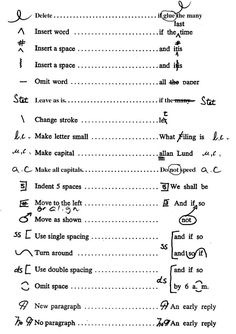Copyediting

" … sit me down to copyedit and I seize up."
I drag both feet when it comes to copyediting what I've written. I write in three month batches, finishing each piece to a readable state, then collating the heap into a contiguous form before carefully re-reading to make final improvements. The whole parses differently than individual pieces and copyediting hardly encourages itself the way writing does. It's picky work, the sort requiring focused attention. I can't get too caught up in the content or I lose the necessary broader focus, but I dare not get so elevated within any broader focus that I cannot catch the tiniest necessary correction. I find this work to be endlessly boring, nap-inducing, and infinitely unsatisfying. I engage in it only in very small ©2018 by David A. Schmaltz - all rights reserved
sessions, twenty minutes or a half hour, before I find I simply must focus upon something, anything else. I exit feeling emptied.
Every time I exit feeling emptied, I feel less motivated to re-enter and finish this scut work. I do rather enjoy re-savoring stuff I previously wrote, but I write so densely that I seem hardly able to lift my fingers to copyedit. I imagine that my slog reasonably predicts the reaction future readers will experience when first encountering these pieces. This imagining fills me with dread at the prospect of ever publishing the pieces, or ever finding a publisher willing to partner in such an endeavor. These feelings further distance me from re-engaging in the copyediting effort. I cower beneath what seems like a clear and dangerous threat every time.
I don't use the standard copyediting symbols. I copyedit more or less in place. I load up the work in Scrivener, an application which mostly takes care of final formatting, page numbering, and word counting, then work through the manuscript there. Scrivener hardly qualifies as an editor, though it does tip me off on likely misspellings and disagreeing verbs. Visually, the manuscript looks like a narrow column of text in raw form, almost no variety, each part apparently identical to every other part. This visual homogeneity adds to the slog. There are better editing environments. but each produces an end product that would just need translating into Scrivener form, and each such translation provides openings for injecting unintended inconsistencies, so I slog.
Copyediting looks like that last little trivial task that's supposed to finally finish a work, but in practice it feels like the pebble in the shoe that renders me incapable of hiking that last mile. I spend more time on the verge fishing for the pebble that never turns out to be there when I remove the shoe. That pebble only exists when I try to walk, and only when I attempt to walk in this one particular direction. I cannot tell if I suffer from some serious psychological disorder, a sort of selective aphasia only manifesting when attempting to validate what I previously wrote. I can write all day long with little negative effect, and re-write without hitting any barrier, but sit me down to copyedit and I seize up.
The Muse and I hold an ethic in our kitchen. The meal's not over until the kitchen's clean. I try to clean as I cook so I won't leave much of a tail lagging behind the effort. Still, the clean-up usually feels like a rude interruption and requires genuine discipline to complete. We always manage to complete it, though, before we head for bed. We tend to eat so late into the evening that once we've finished the meal, we're ready for bed, but bed has to wait until we complete this small civilizing chore. I might carry displaced guilt over not having finished my copyediting work before bed. I wake to find my copyediting kitchen filled with greasy cooking pots and piles of dried-on dishes. I feel much less a writer for this persistent inability to clean up my leftovers.


